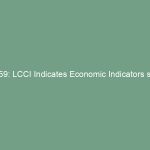Why the World Cannot do without Africa
Introduction
Africa, often referred to as the “mother continent” due to its rich history and abundant resources, plays an indispensable role in the global landscape. In this article, we will delve into the myriad reasons why the world cannot do without Africa. From its historical significance as the oldest inhabited continent to its status as a powerhouse of natural resources, Africa stands at the forefront of global importance.
Historical Significance
Africa’s historical legacy is unparalleled. It is not only the oldest inhabited continent on Earth but also a cradle of human civilization. Scholars have long debated the origin of the name “Africa,” with theories linking it to words used by ancient civilizations like the Phoenicians, Greeks, and Romans. For instance, the Egyptian word “af-ruit” translates to “Motherland,” emphasizing Africa’s historical and cultural importance.
Abundance of Natural Resources
One of Africa’s standout features is its wealth of natural resources. It boasts an impressive array of assets, ranging from arable land and freshwater to oil, natural gas, minerals, forests, and wildlife. In fact, Africa holds a significant portion of the world’s natural resources, both renewable and non-renewable.
Mineral Wealth
Africa is a global leader in the production of essential metals and minerals. Metals like platinum, cobalt, and nickel are vital components of various industries. For example, platinum finds its place in both the jewelry and industrial sectors. Cobalt is indispensable for color pigments and rechargeable batteries, while nickel is a crucial component of stainless steel, magnets, and coins.
Gold Production
When it comes to gold production, Africa shines brightly on the global stage. In 2008, the continent produced approximately 483 tons of gold, accounting for a substantial 22 percent of the world’s total production. South Africa, known for its rich gold deposits, contributes significantly to Africa’s gold production. Ghana, Guinea, Mali, and Tanzania are also noteworthy players in the gold market.
Diamond Dominance
Africa commands the global diamond market, responsible for producing a substantial 55 percent of the world’s diamonds in 2008. However, this dominance has been accompanied by challenges. Conflict diamonds, often referred to as “blood diamonds,” have fueled several African conflicts and civil wars. In response, the United Nations established the Kimberly Process Certification Scheme (KPCS) to certify conflict-free diamonds.
Oil and Natural Gas
Africa is no stranger to the energy sector, with substantial reserves of oil and natural gas. In 2007, the continent contributed 12.5 percent of the world’s total oil production and 6.45 percent of global natural gas production. Nigeria, Libya, Algeria, Egypt, and Angola are pivotal players in Africa’s oil industry.
Impact on Infrastructure
Africa’s resource wealth has left a lasting imprint on its infrastructure and development. Notable engineering marvels, such as the Aswan High Dam in Egypt and the Driefontein Gold Mine in South Africa, stand as testaments to Africa’s resource-driven progress.
Challenges in Resource Management
Despite its abundance, Africa faces challenges in managing its resources sustainably. Poor regulation and overexploitation often hinder the continent’s ability to fully capitalize on its resource wealth. Balancing economic development with environmental conservation remains a pressing concern.
Global Impact
The minerals and metals sourced from Africa play pivotal roles in modern technology. From lithium and cobalt in batteries to tantalum in electronic components, these resources influence global supply chains, highlighting Africa’s significance on a global scale.
Economic Contribution
The economic significance of Africa’s mineral wealth cannot be overstated. In 2019, South Africa, Nigeria, Algeria, Angola, and Libya collectively generated substantial revenue from their mineral resources, underscoring the vital role these assets play in national economies.
Environmental Concerns
Resource exploitation in Africa has raised environmental concerns, including biodiversity loss, pollution, and climate change. Responsible extraction practices and sustainable resource management are imperative to mitigate these issues.
Role in Technology
African minerals like lithium and tantalum are critical components of modern technology. From smartphones to laptops, these minerals are essential for various electronic devices, emphasizing Africa’s impact on the tech industry.
Conclusion
In conclusion, Africa’s historical significance, rich natural resources, and pivotal role in global industries make it a continent that the world simply cannot do without. To ensure a prosperous future, it is essential to prioritize sustainable resource management and responsible extraction practices.
FAQs
- What are conflict diamonds, and how does the Kimberly Process Certification Scheme address this issue?
Conflict diamonds, also known as “blood diamonds,” are diamonds that originate from regions plagued by armed conflict and are used to finance warfare. The Kimberly Process Certification Scheme (KPCS) is a global initiative that certifies diamonds as conflict-free, helping prevent the trade of diamonds that fund wars.
- How does Africa’s mineral wealth impact global technology?
Africa’s minerals, such as lithium and tantalum, play vital roles in modern technology. They are essential components in electronic devices like smartphones, laptops, and automotive electronics, contributing to global technological advancements.
- What are the environmental challenges associated with resource exploitation in Africa?
Resource exploitation in Africa has led to environmental concerns, including biodiversity loss, pollution, and climate change. Irresponsible extraction practices and insufficient regulation have exacerbated these issues.
- Which African countries are major players in the global diamond market?
Botswana, Angola, South Africa, the Democratic Republic of the Congo, and Namibia are significant producers in the global diamond market, collectively contributing to Africa’s dominance in the industry.
- How can Africa balance economic development with environmental conservation in resource management?
Balancing economic development with environmental conservation requires implementing sustainable resource management practices, adopting responsible extraction techniques, and strengthening regulatory frameworks to ensure long-term prosperity while preserving the environment.










